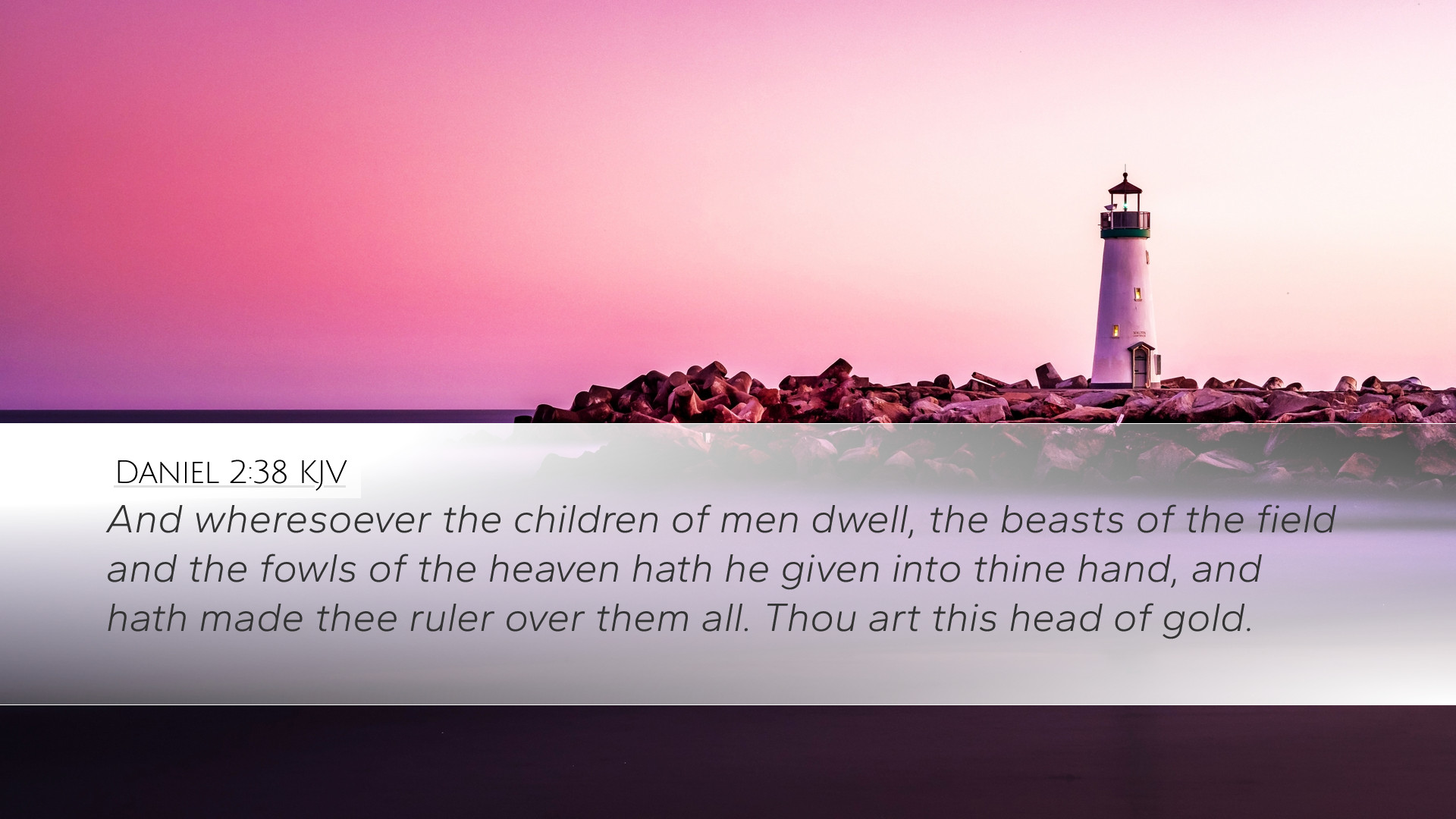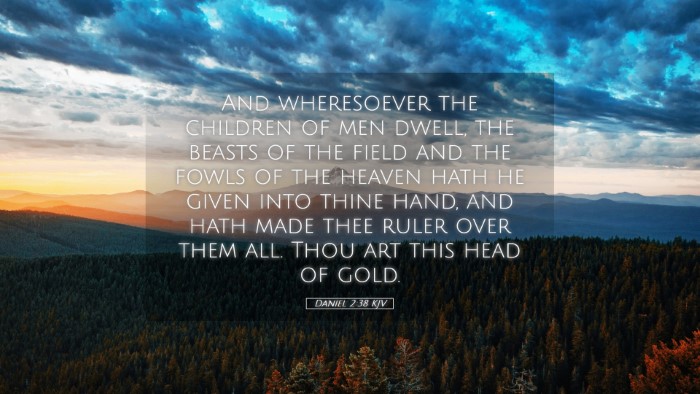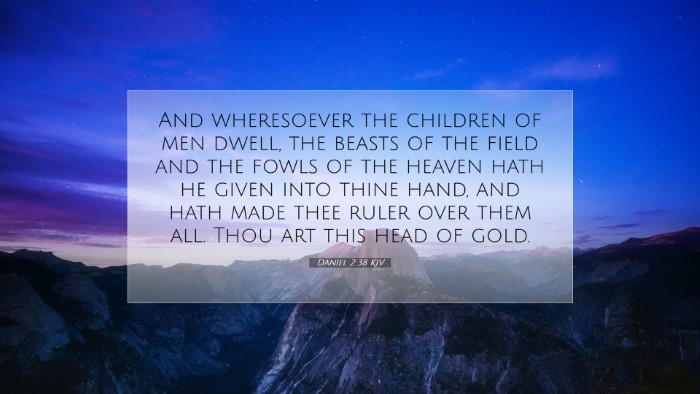Bible Commentary on Daniel 2:38
Daniel 2:38 states, "And wheresoever the children of men dwell, the beasts of the field and the fowls of the heaven hath he given into thine hand, and hath made thee ruler over them all. Thou art this head of gold." This verse is part of a dream interpreted by Daniel for King Nebuchadnezzar, wherein the king is shown his dominion in the grand scheme of empires.
Contextual Overview
In the broader context of Daniel 2, the chapter opens with King Nebuchadnezzar's troubling dream, which none of his wise men could interpret, leading the king to decree their execution. Daniel steps in, seeking time to reveal the dream’s meaning, which he receives from God. In this specific verse, the focus is on Babylon's supremacy and the initial phases of God's plan through human history.
Theological Implications
This verse offers several theological insights:
- Divine Sovereignty: The declaration that God grants power to rulers emphasizes His ultimate authority over kingdoms. Daniel acknowledges that Nebuchadnezzar’s reign is established by divine will. This principle of divine sovereignty is echoed throughout Scripture, reinforcing that God rules over all nations.
- Human Responsibility: The ruler's dominion comes with responsibility. As king, Nebuchadnezzar is tasked to govern wisely and justly, a recurring theme found in biblical literature, highlighting the ethical responsibilities of leaders.
- The Nature of Empire: The imagery of the head of gold signifies not only the glory of Babylon but also the transient nature of worldly power, foreshadowing the eventual downfall of all earthly empires in favor of God’s eternal kingdom.
Commentary Insights
Matthew Henry's Commentary
Matthew Henry emphasizes that this verse signifies Nebuchadnezzar's exaltation among men as God's instrument. He suggests the "head of gold" symbolizes both the wealth and the splendor of the Babylonian empire. Henry notes that this status is not merely for pride but is intended to show God's power through Nebuchadnezzar’s rule.
Albert Barnes' Notes
Albert Barnes elaborates on the notion that the “children of men” encompasses all humanity, indicating that Nebuchadnezzar is appointed as a ruler not just in Babylon but over the entire known world. He underscores that this dominion is to be understood in the context of God’s providential governance, where God uses rulers for His purposes, emphasizing the temporary nature of their reigns as seen in subsequent kingdoms represented in the statue of the dream.
Adam Clarke's Commentary
Adam Clarke reflects on the significance of the beasts and fowls being handed over to the king, symbolizing the comprehensive nature of his authority. He points out that this dominion reflects a fulfillment of God's intent for man as seen in Genesis, where man is commanded to have dominion over the Earth. Clarke suggests that this demonstrates the alignment of human authority with divine mandate, yet warns of the perilous pride that can arise from such power.
Lessons for Pastors and Theologians
This verse enables pastors and theologians to draw key lessons regarding leadership and authority. The intricacies of leadership within the church and society are underscored, reminding leaders to acknowledge God's sovereignty over their roles. The text invites reflection on how leaders can strive for godly governance that honors the divine appointment over them.
Conclusion
Daniel 2:38 serves as a powerful reminder of God's sovereign rule and the nature of human authority. It calls for a recognition of divine providence in leadership while also serving as a caution against pride and tyranny. Daniel's interpretation establishes a foundation for understanding subsequent empires and God's ultimate plan for humanity, leading to a climactic kingdom established by Jesus Christ. As such, this passage remains pertinent for contemporary discussions on leadership, authority, and the responsibilities that accompany them.


